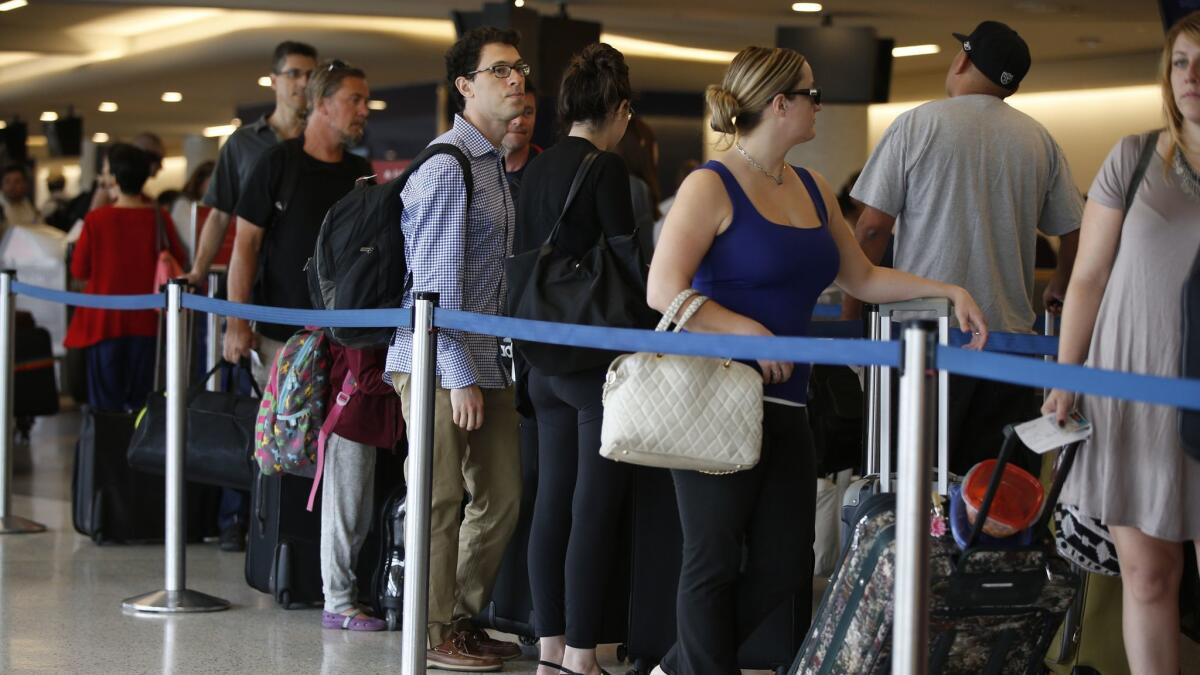Labor Day weekend expected to set a record with 16.5 million air travelers

- Share via
During the final holiday of the summer, a record 16.5 million people are expected to fly on U.S. airlines, a 3.5% increase over the Labor Day weekend in 2017, according to Airlines for America, the trade group for the nation’s air carriers.
The country’s airlines are expected to fly 2.36 million passengers a day over a seven-day holiday period, an increase of 79,000 travelers a day from the same period in 2017, according to the trade group. The carriers are expected to fly 2.76 million additional seats a day to meet the higher demand.
For the record:
3:00 a.m. Aug. 29, 2018A previous version of this story said Airlines for America predicts 16.5 million people will fly on U.S. carriers over a four-day weekend. The forecast is for a seven-day holiday period.
Airline industry experts attribute the increase in air travel to affordable airline tickets but say the demand for travel has been increasing for several years along with the rebound of the U.S. economy and the strengthening of consumer confidence.
In the first three months of 2018, the average domestic airline ticket sold for $360, a decline of 3.7% from the same period last year, according to the U.S. Bureau of Transportation Statistics.
But the airline industry trade group warns that fuel prices are on the rise, which has begun pushing down the profit margins of the country’s airlines. Some airline experts have warned that such conditions may push fares up soon.
Fuel prices have increased 31.1%, with labor costs rising 5.7% in the first half of 2018 compared with the same period last year, according to Airlines for America. That has pushed profit margins for the nation’s airlines from an average of 11.5% in the first six months of 2017 to 7.2% in the same period this year, the group said.
To read more about the travel and tourism industries, follow @hugomartin on Twitter.
More to Read
Inside the business of entertainment
The Wide Shot brings you news, analysis and insights on everything from streaming wars to production — and what it all means for the future.
You may occasionally receive promotional content from the Los Angeles Times.











